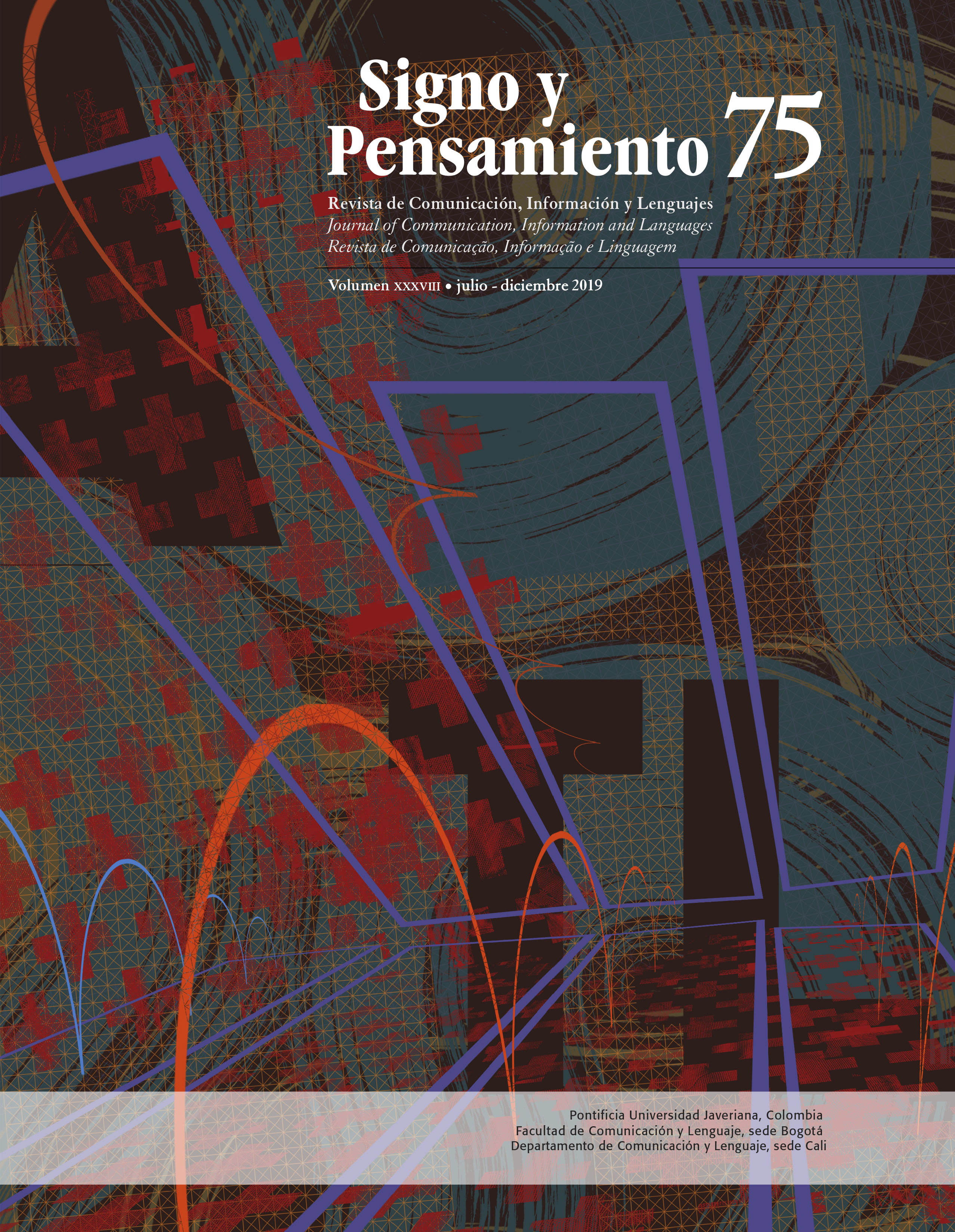Abstract
This article seeks to show how the memories of the Colombian armed conflict are constructed based on college audiovisual narratives during 2005-2014. Clearly, videos evince different narrative purposes according to the audiovisual format they used; while the fiction short films focus on ethical questioning. Documentaries do more than displaying the traumatic events from the victim’s memories; they also narrate the efforts to overcome those traumas through the art and the contact with nature. It provides an opening to new horizons of a pacific life. It is noticeable that experimental videos use more audacious languages that penetrate the viewer’s conscience with symbolic denunciation intended to disclose maleficent alliances between politics, violence and the media that serve the big multinational capitals.
Colmeiro, J. (2005). Memoria histórica e identidad cultural: de la posguerra a la postmodernidad. Barcelona: Anthropos Editorial.
Cubides, J. (2011). Jóvenes y política ¿de objetos a sujetos de política? En F. Acosta, J. Cubides & L. Galindo, Sentidos y prácticas políticas en el mundo juvenil universitario (pp. 21-40). Bogotá: Universidad Nacional de Colombia.
Grupo de Memoria Histórica. (2013). ¡Basta ya! Colombia: memorias de guerra y dignidad (Informe General). Bogotá: Centro Nacional de Memoria Histórica. Recuperado de http://www.centrodememoriahistorica.gov.co/descargas/informes2013/bastaYa/basta-ya-colombia-memorias-de-guerra-y-dignidad-2016.pdf
Halbwachs, M. (2005). La memoria colectiva. Zaragoza: Ediciones Universitarias de Zaragoza.
Herrera, J. D. (2010). La comprensión de lo social. Horizonte hermenéutico de las ciencias sociales. Bogotá: Fundación Centro Internacional de Educación y Desarrollo Humano.
Mate, M. (2008). Justicia de las víctimas. Terrorismo, memoria y reconciliación. Barcelona: Anthropos Editorial.
Mate, M. (2012). Memoria de la barbarie y construcción del futuro. Barcelona: Ediciones Generalitat de Catalunya.
Moretti, F. (2007). La literatura vista desde lejos. Barcelona: Marbot Ediciones.
Morin, E. (2009). Breve historia de la barbarie en Occidente. Barcelona: Paidós.
Ricoeur, P. (2008). La memoria, la historia, el olvido. Buenos Aires: Fondo de Cultura Económica.
Vich, V., & Zavala, V. (2004). Oralidad y poder. Herramientas metodológicas. Bogotá: Norma.
This journal is registered under a Creative Commons Attribution 4.0 International Public License. Thus, this work may be reproduced, distributed, and publicly shared in digital format, as long as the names of the authors and Pontificia Universidad Javeriana are acknowledged. Others are allowed to quote, adapt, transform, auto-archive, republish, and create based on this material, for any purpose (even commercial ones), provided the authorship is duly acknowledged, a link to the original work is provided, and it is specified if changes have been made. Pontificia Universidad Javeriana does not hold the rights of published works and the authors are solely responsible for the contents of their works; they keep the moral, intellectual, privacy, and publicity rights.
Approving the intervention of the work (review, copy-editing, translation, layout) and the following outreach, are granted through an use license and not through an assignment of rights. This means the journal and Pontificia Universidad Javeriana cannot be held responsible for any ethical malpractice by the authors. As a consequence of the protection granted by the use license, the journal is not required to publish recantations or modify information already published, unless the errata stems from the editorial management process. Publishing contents in this journal does not generate royalties for contributors.



